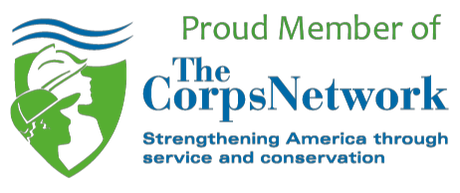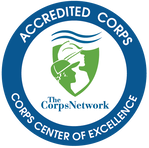Career Training in the STEM Fields
Earn valuable work experience while you're in school and build a quality resume that will help you qualify for a job in your field after graduation.
Learn the skills you need to succeed in industry with a team that supports you!
TRAINING:
Members undergo GEM Environmental Orientation, AmeriCorps Orientation, meaning of National Service, Member Prohibited Activities, how to use your Education Award, Safety, and Leave No Trace trainings upon arrival.
PROGRAM BENEFITS:
Upon the successful completion of their term, members may be eligible to receive the following.
Learn the skills you need to succeed in industry with a team that supports you!
TRAINING:
Members undergo GEM Environmental Orientation, AmeriCorps Orientation, meaning of National Service, Member Prohibited Activities, how to use your Education Award, Safety, and Leave No Trace trainings upon arrival.
PROGRAM BENEFITS:
- Living Allowance Stipends
- Housing Allowance Stipends
- OSHA Safety Training Certifications
- Professional development opportunities
- Professional training certificates
- Hands-on Work Experience
- Mentorships
- Internships
- Networking with Industry Professionals
- Career Development
- Real World Resume Experience
Upon the successful completion of their term, members may be eligible to receive the following.
- Segal Education Awards up to $6895 per year
- Two-year PLC federal non-competitive hiring status eligibility for individuals between 16-30 years old (or 35 for veterans)**
Working from our headquarters located in Prescott, AZ, GEM Corps' Youth Conservation Crew (YCC) members participate in meaningful outdoor conservation projects alongside a variety of land management agencies, municipalities, and community partners across Yavapai County, Arizona. These partnerships provide unique and beneficial opportunities for all GEM Corps members to gain hand-on experience with experts in their fields under the guidance and mentorship of qualified professionals. Over the course of their AmeriCorps service term, members spend approximately 25-30 hours per week on service projects with 15-25 hours in the field on project work and 5-10 hours on professional development or career readiness training through a series of workshops, networking opportunities, online courses, certificate training, and more. Conservation projects may include: Trail construction and maintenance; non-native plant removal and disposal; re-vegetation of native plants; restoring and improving environmental and cultural resources; soil erosion prevention; constructing or maintaining fences; conducting wildlife, wilderness, and ecological surveys and assessments; fuels reduction and forest health maintenance; resource planning and technical data monitoring; and mapping, survey, and GIS projects
|
Move forward with confidence and apply today!
|


